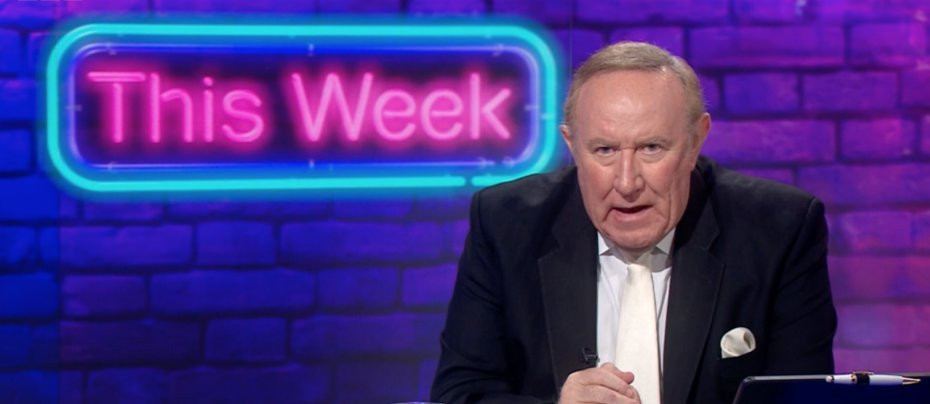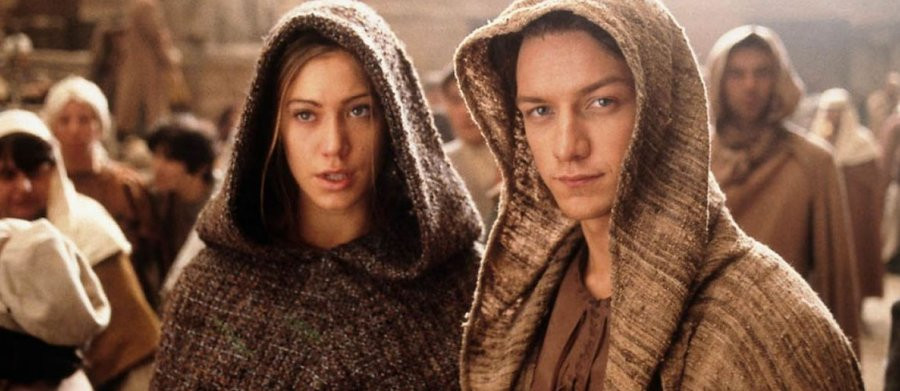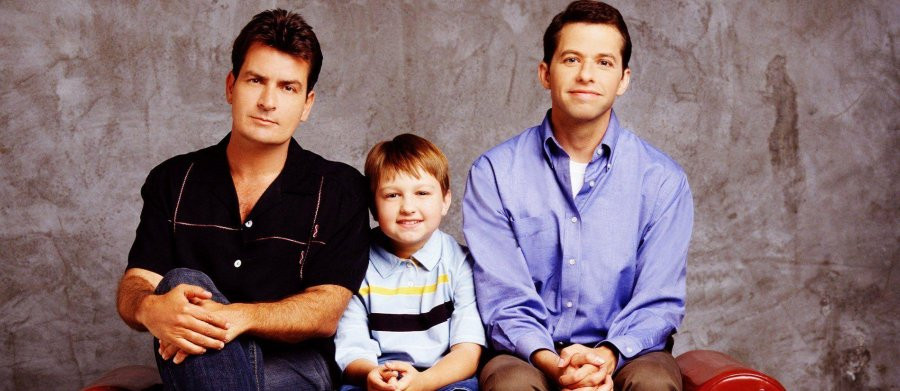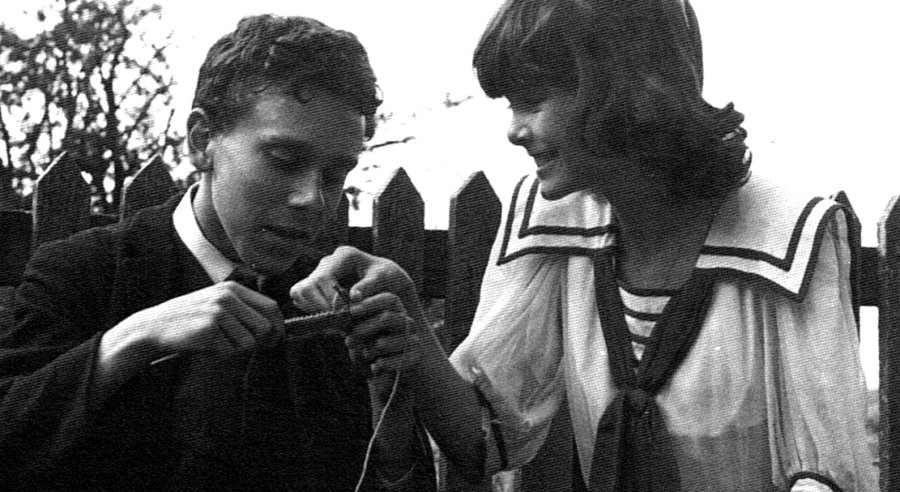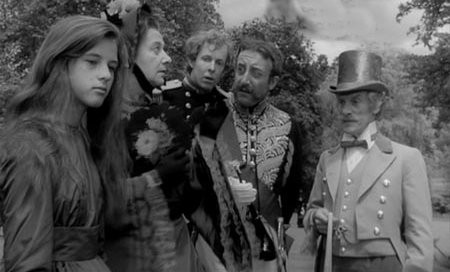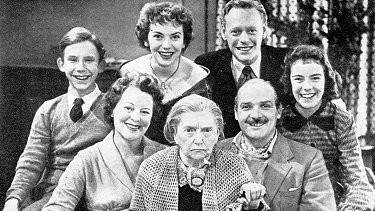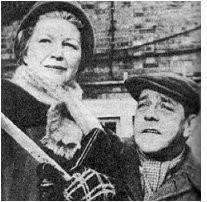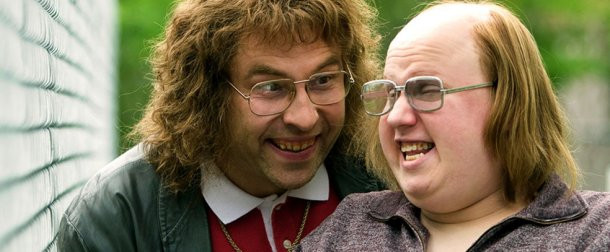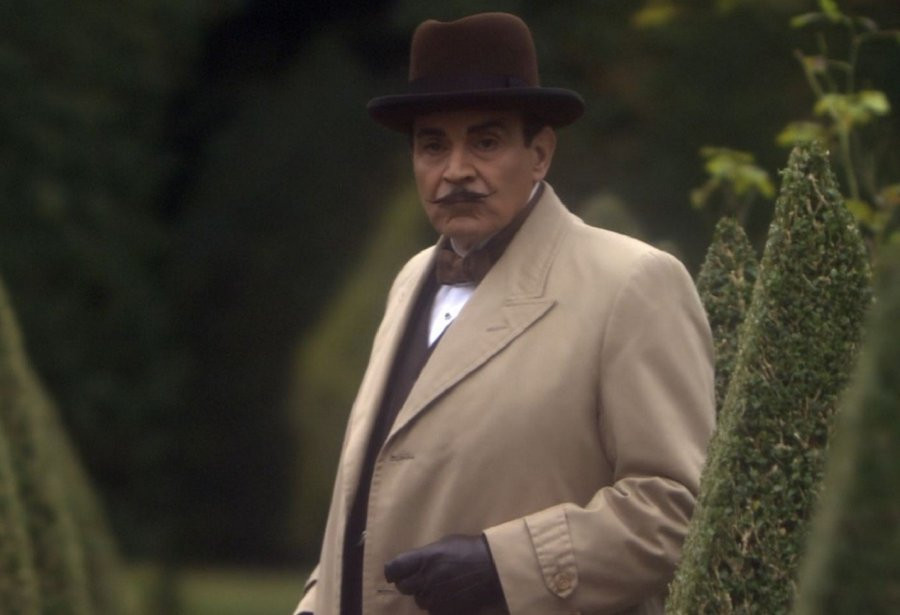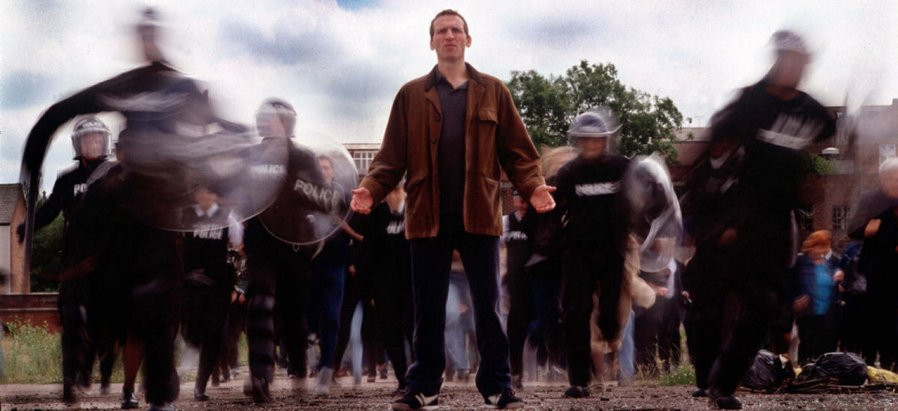
The Second Coming
2003 - United KingdomStephen Baxter is an easygoing, larger drinking, working class video-store assistant born and bred in Manchester, Northern England. The same Stephen Baxter also claims to be the Son of God returned to the mortality he departed some two thousand years earlier, to once more deliver a profoundly important message unto Humankind.
At its very best, television drama as well as entertaining should also aspire to prompt the viewing audience to think, question and discuss. Over the past decade few productions have succeeded - let alone truly attempted - to stimulate their audience beyond the glossy but ultimately superficial level of pure entertainment. However, with major two-part Granada Television production for ITV 1, The Second Coming, writer Russell T Davies (Queer as Folk - Bob and Rose - Casanova - Doctor Who) has consolidated his reputation as a creator of vision, imagination and intelligence by successfully fusing both enjoyable entertainment with deep underlying moral, philosophical and theological questions to produce a genuinely fresh, risk-taking and richly rewarding piece of post millennial drama.
From the moment Stephen Baxter performs his first miracle at Manchester City's football stadium, through his proclamation that humanity must produce a "Third Testament", or face Armageddon and the ensuing instantaneous world-wide fame thrust upon him, Davies' artfully scripted post modern parable unfolds with a wit and finesse that the majority of modern dramas can only dream of coming close to attaining, yet alone sustaining.
In the role of Baxter, the ever interesting and intense Christopher Eccleston (Cracker - Our Friends in the North - Hillsborough - Clocking Off - Doctor Who) effortlessly conveys the subtle paradoxical fusion of ordinary bloke with mysterious divine messenger, imbuing the character with an effectively unsettling aura of likeability and otherworldly charisma from the outset. But if Eccleston is impressive it's the equally perfectly judged performance of Lesley Sharp, (Frank Stubbs Promotes - Clocking Off), as Judith, Stephen's down-to-earth, highly sceptical best friend which is the human heart of the drama. Excellent as always in the pivotal role, Sharp's Judith is an instantly identifiable "Everyperson", whose refusal to be either broken or bowed by the universe shaking events threatening to over take her, forms the solid human core which ultimately seals the fate of both Stephen Baxter, and the world as a whole.
For those yet to have had the opportunity of viewing The Second Coming for themselves, I shall refrain from detailing the ultimate resolution of the show. However, the very fact that Davies' script - while providing the only realistic dramatic outcome - also serves as a springboard to genuine debate amongst viewers regarding the story's ramifications, can only be applauded by those of us who value drama as a tool that can be used effectively to highlight complex questions about the state of the human condition.
Amazingly, this pedigree example of drama was rejected by both the BBC and Channel 4 before finally being commissioned - rather surprisingly, one might be tempted to think - by ITV 1. As Davies recalled in a subsequent Radio Times article: "One drama executive's words to me struck home - 'I think you're going to look stupid'". Disheartening words for hopeful would-be creators of future intelligent dramas. And also fatally short-sighted in that to avoid addressing issues of merit through the dramatic medium means an increasingly "safe", "play-by-the-rules and offend nobody", creative cul-de-sac for British television.
Part of Russell T Davies' deliberate intentions with the show, apart from entertaining is to provoke debate. He stated his hopes thus: "I hope a couple who have been married for 40 years will turn to each other at the end of The Second Coming and say, 'So, what do you believe?' It will get people talking - and that's brilliant." Davies then goes on to pinpoint a major function of television drama that is all too often overlooked by contemporary producers and writers working in the medium: "If TV drama doesn't do that, [engender debate] it's just wallpaper".
While not entirely flawless in terms of overall story structure, The Second Coming is nevertheless a ground-breaking production of true original creative sweep that might possibly prove to be the most original and thought-provoking piece of televisual drama we will be privileged to see grace our screens for many years to come.
Published on January 28th, 2019. Written by Peter Henshuls (2003) for Television Heaven.


